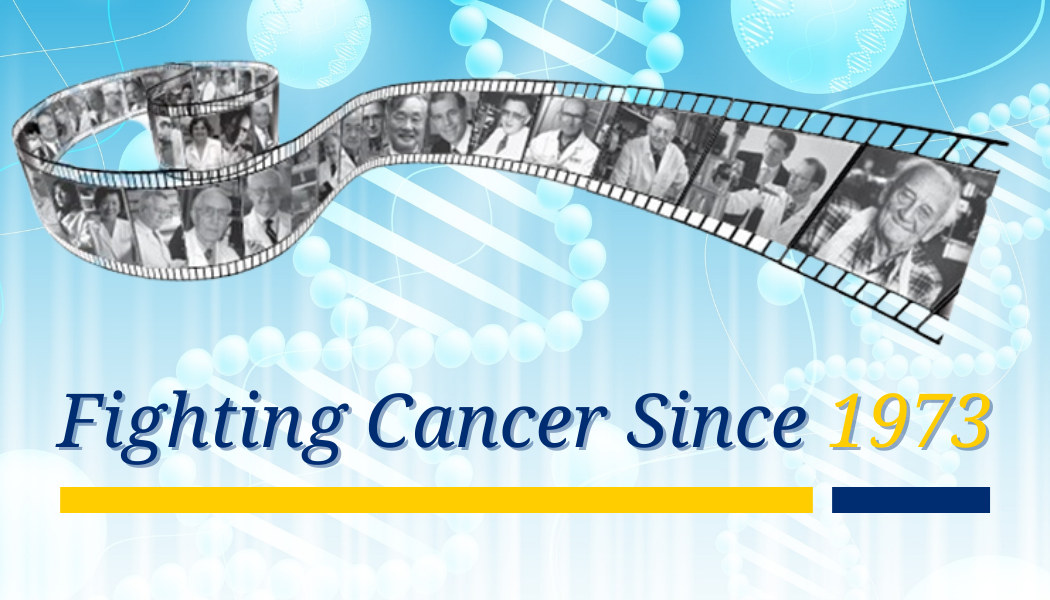
Co-founded in 1973 by Nobel Laureate Albert Szent-Györgyi, M.D., Ph.D., and supported by nearly four million individual donors, the National Foundation for Cancer Research has provided hundreds of millions of dollars to fund discovery-oriented cancer research and prevention education. Today, NFCR scientists and their teams continue to work at the leading edge of cancer research.
Over the course of nearly five decades, our commitment to “Research for a Cure” has made a tremendous difference in the lives of cancer patients and their families worldwide.
Below are just a few of the significant basic research discoveries and laboratory breakthroughs made possible by NFCR’s support to our scientists.

Vascular Endothelial Growth Factor (VEGF) is discovered by Dr. Harold Dvorak. The breakthrough was the essential first step in the development of the entire field of research into tumor angiogenesis (development of new blood vessels). His discovery led to VEGF-targeting anti-angiogenic drugs such as AvastinTM, used today for treating patients with colorectal, lung, brain, ovarian, renal, and cervical cancers.

Dr. Helmut Sies discovered the cancer preventative effects of lycopene, a widely recognized antioxidant found in tomatoes and other vegetables. This finding led to an enhanced public awareness of maintaining a healthy diet for cancer prevention.

The role of Vitamin B12 and folic acid in preventing DNA damage was confirmed by Dr. Bruce N. Ames. His findings have since been translated into clear public policy recommendations on the role of a healthy diet in reducing cancer risk.

The vital role of Progesterone Receptors (PR) in breast cancer was confirmed by Dr. Kathryn Horwitz, who subsequently developed detection tools which are now routinely used to test for breast cancer patients. Her findings have also had a profound impact on directing clinical usage of tamoxifen in breast cancer patients.

The theory of “Oncogene Addiction” was proposed by Dr. I. Bernard Weinstein. It has since served as the basis and provided a guideline for the development of many of today’s targeted cancer therapies, including IressaTM, TarcevaTM and GleevecTM.

A microchip-based device called the CTC-chip was developed by Dr. Daniel Haber and colleagues. The tool allows researchers to capture a few circulating tumor cells (CTCs) that have entered the bloodstream and track their genetic changes in real-time, making it possible for non-invasive and continuous monitoring of tumor cells during treatment.

Dr. Yung-Chi Cheng analyzed and initially tested a botanical combination called YIV-906 (PHY906) as an effective addition to chemotherapy. Since then, his lab has shown YIV-906 has multiple anti-cancer properties. The compound is now in clinical trials for liver cancer and could become one of the first U.S. Food and Drug Administration–approved herbal cancer medicines.










